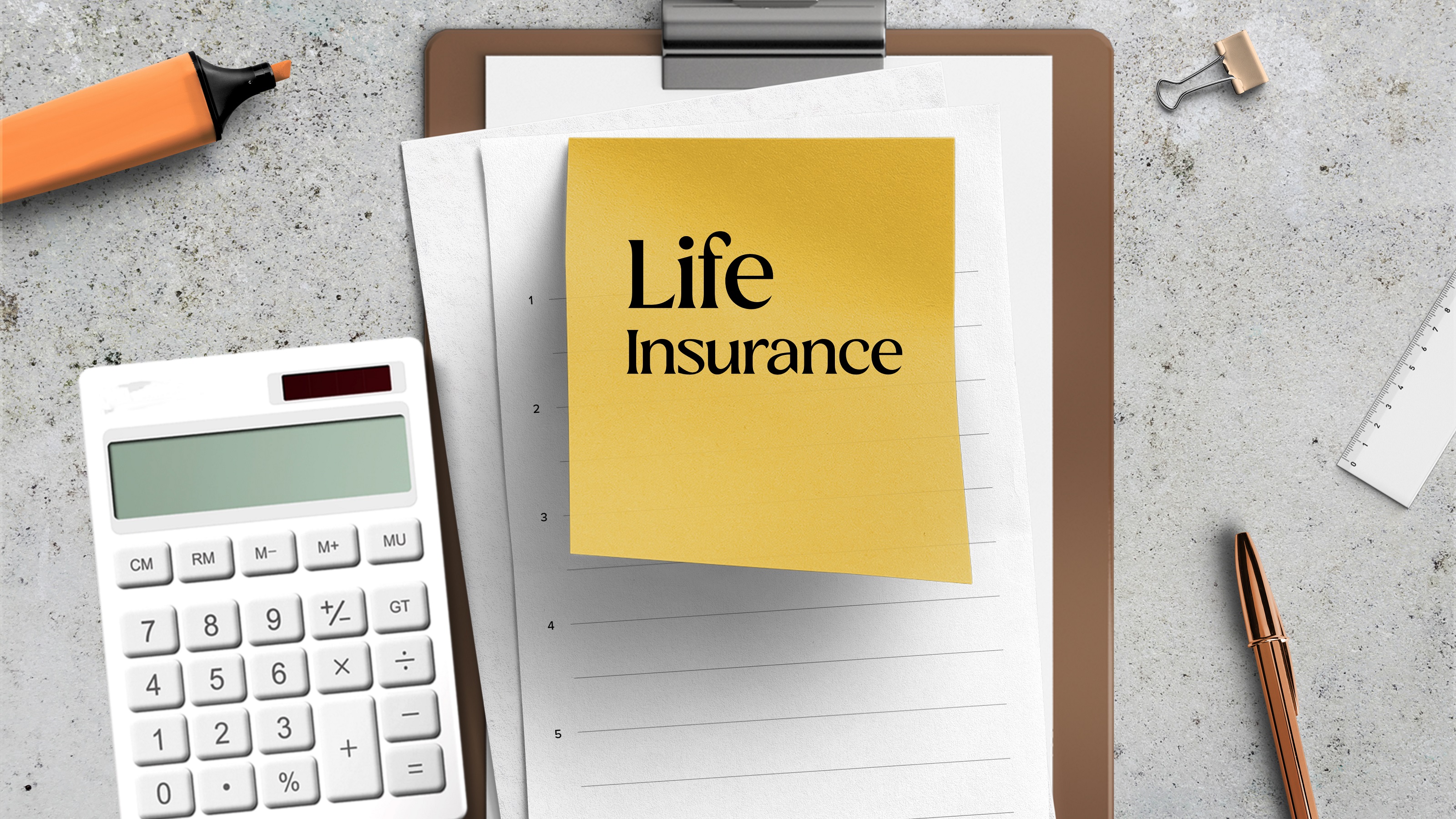
Profit and prosper with the best of Kiplinger's advice on investing, taxes, retirement, personal finance and much more. Delivered daily. Enter your email in the box and click Sign Me Up.
You are now subscribed
Your newsletter sign-up was successful
Want to add more newsletters?

Delivered daily
Kiplinger Today
Profit and prosper with the best of Kiplinger's advice on investing, taxes, retirement, personal finance and much more delivered daily. Smart money moves start here.

Sent five days a week
Kiplinger A Step Ahead
Get practical help to make better financial decisions in your everyday life, from spending to savings on top deals.

Delivered daily
Kiplinger Closing Bell
Get today's biggest financial and investing headlines delivered to your inbox every day the U.S. stock market is open.

Sent twice a week
Kiplinger Adviser Intel
Financial pros across the country share best practices and fresh tactics to preserve and grow your wealth.

Delivered weekly
Kiplinger Tax Tips
Trim your federal and state tax bills with practical tax-planning and tax-cutting strategies.

Sent twice a week
Kiplinger Retirement Tips
Your twice-a-week guide to planning and enjoying a financially secure and richly rewarding retirement

Sent bimonthly.
Kiplinger Adviser Angle
Insights for advisers, wealth managers and other financial professionals.

Sent twice a week
Kiplinger Investing Weekly
Your twice-a-week roundup of promising stocks, funds, companies and industries you should consider, ones you should avoid, and why.

Sent weekly for six weeks
Kiplinger Invest for Retirement
Your step-by-step six-part series on how to invest for retirement, from devising a successful strategy to exactly which investments to choose.
When you think of your life insurance plan, what is the first thing you think of? For many, it’s being thankful there is a plan in place to help your family financially after you pass away. While this is an important component, there are more benefits to having life insurance.
Life insurance is meant to help your family cope with the loss of income when you pass by paying out a benefit. However, some life insurance policies have a cash value component and can also be used to save for retirement. While we all know the importance of having a life insurance plan, there are a few options to choose from. Each has benefits, but to pick a policy that is right for you, the key is to know their differences.
Term life insurance
The most common type is term life insurance. These plans provide a death benefit that will pay beneficiaries over a specific period of time. Once the term expires, you can either renew it, let it expire or convert it to a different type of life insurance. With these plans, the only value is the guaranteed benefit after you pass. They do not feature any other savings components.
From just $107.88 $24.99 for Kiplinger Personal Finance
Become a smarter, better informed investor. Subscribe from just $107.88 $24.99, plus get up to 4 Special Issues

Sign up for Kiplinger’s Free Newsletters
Profit and prosper with the best of expert advice on investing, taxes, retirement, personal finance and more - straight to your e-mail.
Profit and prosper with the best of expert advice - straight to your e-mail.
Premiums for this plan are usually based on your age, gender, health and how much the policy would pay out if you pass away. In some cases, you may have to go through a medical examination to determine your qualifications. They may ask you questions about your current medications, smoking status, occupation, family history or hobbies. If you pass during the policy term, your beneficiaries will receive the cash benefit. This is typically used to settle your funeral expenses, health care costs or any type of debt you may have had.
While this is the most common practice for this payment, there are no restrictions on how the money can be used.
Whole life insurance
Unlike term life insurance, which lasts a specific amount of time, whole life insurance policies are one of several policies that are permanent. This means you are covered for your entire life, and as long as you continue to pay the premium, your policy will never expire. Whole life also has a cash value component, which you can draw on or borrow from as the policy owner. Part of your premium will go toward the death benefit and part will go toward the cash component.
This cash value offers a benefit to you while you are still alive, unlike other insurance plans. You can request a withdrawal of funds or a loan. There will be interest on these loans, but the rates are typically lower than you would see with a personal loan. However, it is important to know that if you decide to withdraw or borrow against your policy, you will be reducing your death benefits.
Indexed universal life insurance
Indexed universal life insurance is another permanent option for life insurance. Similar to whole life insurance, this also has a death benefit as well as a cash value component. With indexed universal life insurance plans, you may see higher earnings. This is because it is tied to a well-known stock market index such as the S&P 500 or the Nasdaq-100.
If you have an indexed universal life insurance plan, you can borrow against the cash you accumulate in the policy. Keep in mind that if you don’t pay it back, the money is deducted from the death benefit.
An attractive feature of these plans is their flexibility. You can increase your premiums or lower them during times of hardship. The cash value that you build up can be used to lower or potentially cover your premiums without subtracting from the death benefit.
Embrace the benefits of life insurance
Don’t depart from this earth leaving your loved ones with huge bills. Most of us know the importance of having life insurance, but many don’t have the proper education on which plans to consider. Life insurance is not a simple, one-size-fits-all decision, so I always recommend working with a financial adviser who can help you find the right policy for you.
Related Content
- How to Shop for Life Insurance in Three Easy Steps
- 10 Things You Should Know About Life Insurance
- How Life Insurance Can Help You Preserve Your Wealth
- Three Big Ways That Life Insurance Can Be a Lifeline
- Don’t Let a Medicare Mistake Haunt Your Retirement
Profit and prosper with the best of Kiplinger's advice on investing, taxes, retirement, personal finance and much more. Delivered daily. Enter your email in the box and click Sign Me Up.

Jay Dorso has more than 25 years of experience in the financial industry. At Quality Senior Benefits, Jay specializes in helping seniors with every area of retirement planning. From Medicare plans to insurance and long-term care, Jay helps set his clients up for success in retirement. Quality Senior Benefits is an independent firm that offers a wide range of insurance and financial services products.
-
 Nasdaq Leads a Rocky Risk-On Rally: Stock Market Today
Nasdaq Leads a Rocky Risk-On Rally: Stock Market TodayAnother worrying bout of late-session weakness couldn't take down the main equity indexes on Wednesday.
-
 Quiz: Do You Know How to Avoid the "Medigap Trap?"
Quiz: Do You Know How to Avoid the "Medigap Trap?"Quiz Test your basic knowledge of the "Medigap Trap" in our quick quiz.
-
 5 Top Tax-Efficient Mutual Funds for Smarter Investing
5 Top Tax-Efficient Mutual Funds for Smarter InvestingMutual funds are many things, but "tax-friendly" usually isn't one of them. These are the exceptions.
-
 Social Security Break-Even Math Is Helpful, But Don't Let It Dictate When You'll File
Social Security Break-Even Math Is Helpful, But Don't Let It Dictate When You'll FileYour Social Security break-even age tells you how long you'd need to live for delaying to pay off, but shouldn't be the sole basis for deciding when to claim.
-
 I'm an Opportunity Zone Pro: This Is How to Deliver Roth-Like Tax-Free Growth (Without Contribution Limits)
I'm an Opportunity Zone Pro: This Is How to Deliver Roth-Like Tax-Free Growth (Without Contribution Limits)Investors who combine Roth IRAs, the gold standard of tax-free savings, with qualified opportunity funds could enjoy decades of tax-free growth.
-
 One of the Most Powerful Wealth-Building Moves a Woman Can Make: A Midcareer Pivot
One of the Most Powerful Wealth-Building Moves a Woman Can Make: A Midcareer PivotIf it feels like you can't sustain what you're doing for the next 20 years, it's time for an honest look at what's draining you and what energizes you.
-
 I'm a Wealth Adviser Obsessed With Mahjong: Here Are 8 Ways It Can Teach Us How to Manage Our Money
I'm a Wealth Adviser Obsessed With Mahjong: Here Are 8 Ways It Can Teach Us How to Manage Our MoneyThis increasingly popular Chinese game can teach us not only how to help manage our money but also how important it is to connect with other people.
-
 Looking for a Financial Book That Won't Put Your Young Adult to Sleep? This One Makes 'Cents'
Looking for a Financial Book That Won't Put Your Young Adult to Sleep? This One Makes 'Cents'"Wealth Your Way" by Cosmo DeStefano offers a highly accessible guide for young adults and their parents on building wealth through simple, consistent habits.
-
 Global Uncertainty Has Investors Running Scared: This Is How Advisers Can Reassure Them
Global Uncertainty Has Investors Running Scared: This Is How Advisers Can Reassure ThemHow can advisers reassure clients nervous about their plans in an increasingly complex and rapidly changing world? This conversational framework provides the key.
-
 I'm a Real Estate Investing Pro: This Is How to Use 1031 Exchanges to Scale Up Your Real Estate Empire
I'm a Real Estate Investing Pro: This Is How to Use 1031 Exchanges to Scale Up Your Real Estate EmpireSmall rental properties can be excellent investments, but you can use 1031 exchanges to transition to commercial real estate for bigger wealth-building.
-
 The 8 Stages of Retirement: An Expert Guide to Confidence, Flexibility and Fulfillment, From a Financial Planner
The 8 Stages of Retirement: An Expert Guide to Confidence, Flexibility and Fulfillment, From a Financial PlannerRetirement planning is less about hitting a "magic number" and more about an intentional journey — from understanding your relationship with money to preparing for your final legacy.
